Public Opinion Tracker Deep Dive: Perspectives of Black K-12 Parents (March 2021)
In February, EdChoice increased our sampling of Black K–12 school parents to better understand their unique perspectives, experiences, concerns and preferences. Those views—particularly when it comes to education and schooling—can be very unique compared to other groups in the country, and reflecting information from which we all can learn.
This work is part of our larger commitment, through our partnership with Morning Consult, to provide the latest information about views on K-12 education not just from the general public’s perspective, but from parents, educators and students.
In the latest wave of our monthly Public Opinion Tracker, we obtained completed surveys from 400 Black parents of school-aged children. We look at those results independently, and we compare the responses to those of the total sample of school parents. We received completed surveys from 1,164 K–12 school parents, which itself included an oversample of 700 parents. We plan to continue this oversampling approach for the rest of this year.
What we learned: Black parents are increasingly comfortable sending their children back to school in-person, as well as vaccinating themselves and their children against COVID-19. However, they are still less likely to be comfortable sending their children back to an in-person learning environment than white parents. There is a higher level of preference for at-home schooling among Black parents than white and Hispanic parents; interest in learning pods and use of a tutor remain consistent among Black, white and Hispanic parent groups. Support for charter schools and education savings accounts or ESAs is highest among Black parents—even before they are given a definition of each option.
1. More than half of Black parents are comfortable sending their children back to school in-person, though two-thirds don’t think it will be safe to send their kids back until at least August. White parents are more comfortable than Black parents by a margin of 10 points; Black and Hispanic parents track more closely when it comes to comfort levels with in-person learning.
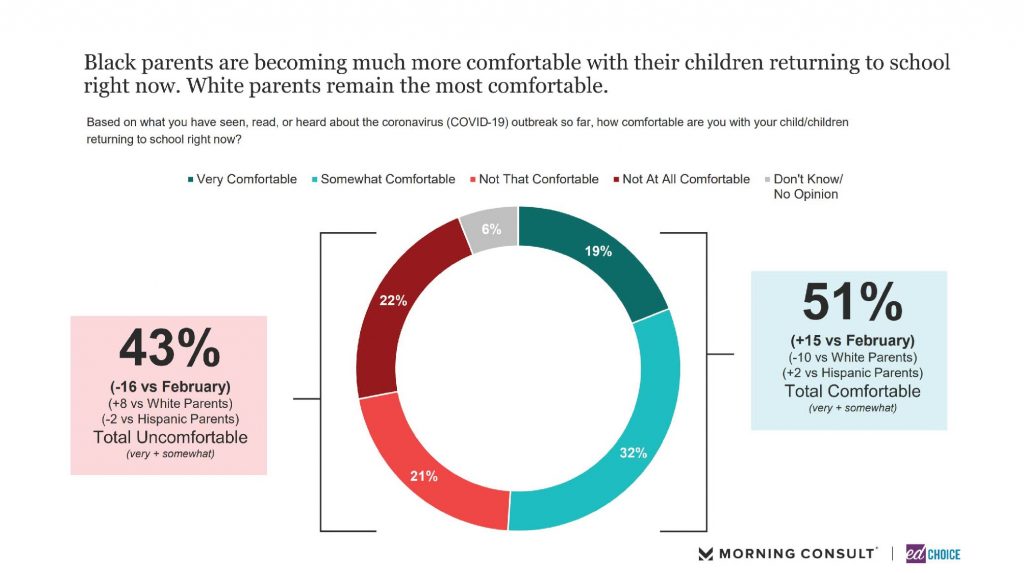
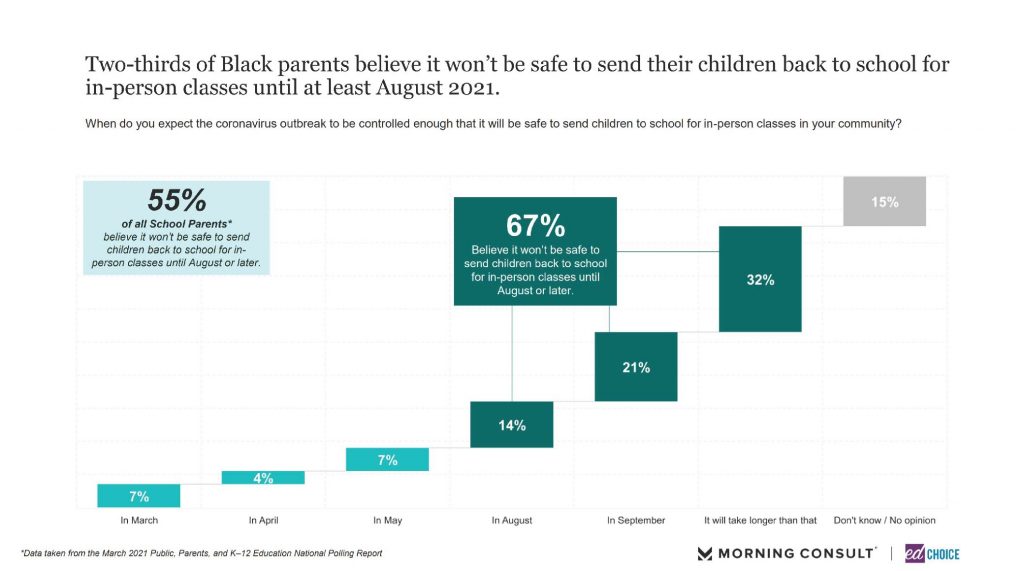
2. As we look toward the future of schooling post-pandemic, Black parents report higher levels of preference for schooling at home compared to schooling outside the home. Only 35 percent prefer schooling that is completely outside the home, compared to 46 percent of white parents and 40 percent of Hispanic parents. A majority of all parent groups prefer schooling that includes at least one day per week at home, which is a finding worth noting as policymakers consider how to re-open schools and whether to support policies like education savings accounts or ESAs, which empower families with more flexibility to customize a learning plan.
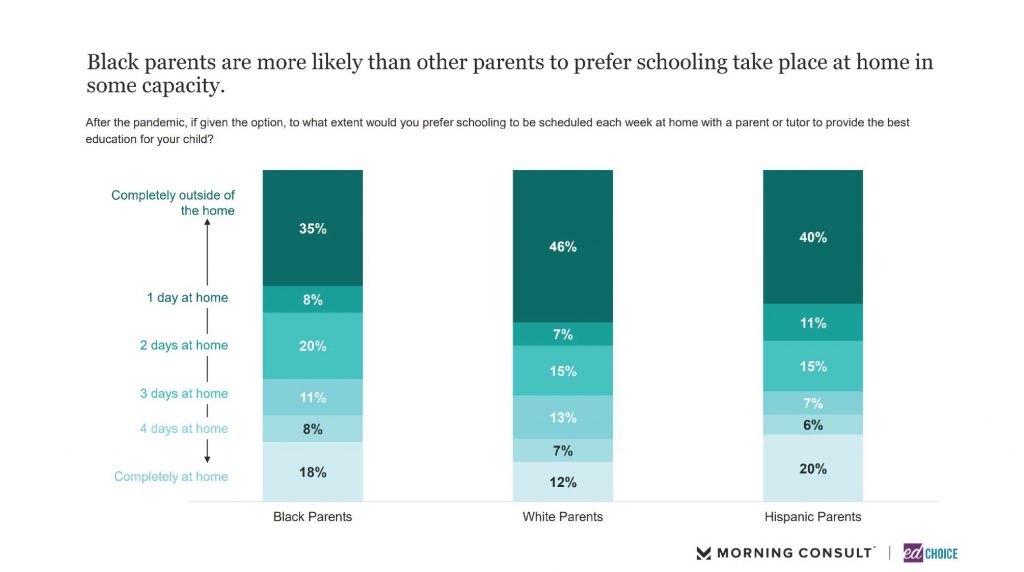
3. Are we still going to be talking about pandemic pods after the pandemic is over? It’s hard to predict the future, but it should be heartening for pod proponents to see that more than one-third of Black parents are either participating in a pod or looking to form or join one. There’s roughly the same level of interest among white and Hispanic parents generally, though interest varies among demographic sub-groups based on income, current schooling type and gender:
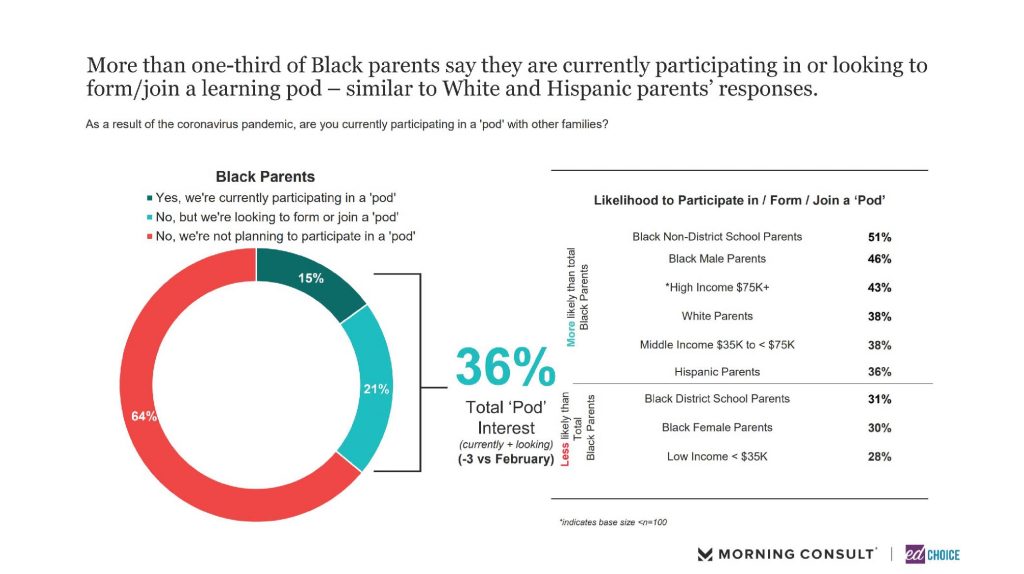
It’s worth noting that interest in pods and tutoring is higher among special needs families—Black and white—than among those who do not have students with special needs, though interest in pods and tutoring has decreased slightly among Black parents since February.
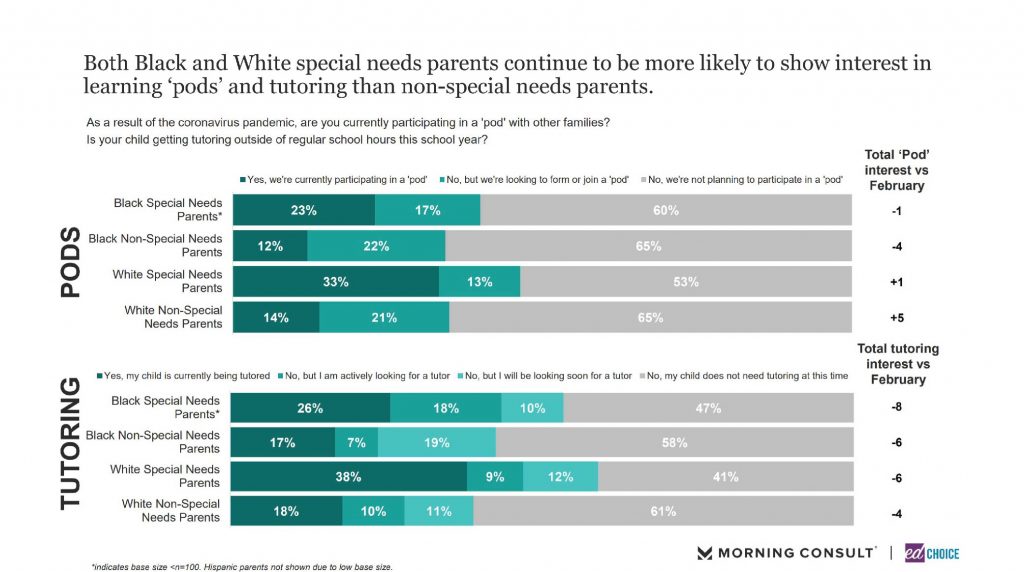
4. Perhaps most notable for those of us who work in school choice advocacy have been the record-high levels of support for different non-traditional schooling types during the pandemic. When we ask parents what they think about different schooling types, we ask the question without a description before adding a description of the schooling type to find out if their support goes up or down. Notably, Black parents have the highest level of support of charter schools and education savings accounts or ESAs both before and after they are offered a description. With that description, 76 percent of Black parents say they support charter schools, and 80 percent say they support ESAs. Support for charter schools goes even higher—79 percent—among Black fathers, while support for ESAs is higher for Black moms—84 percent.
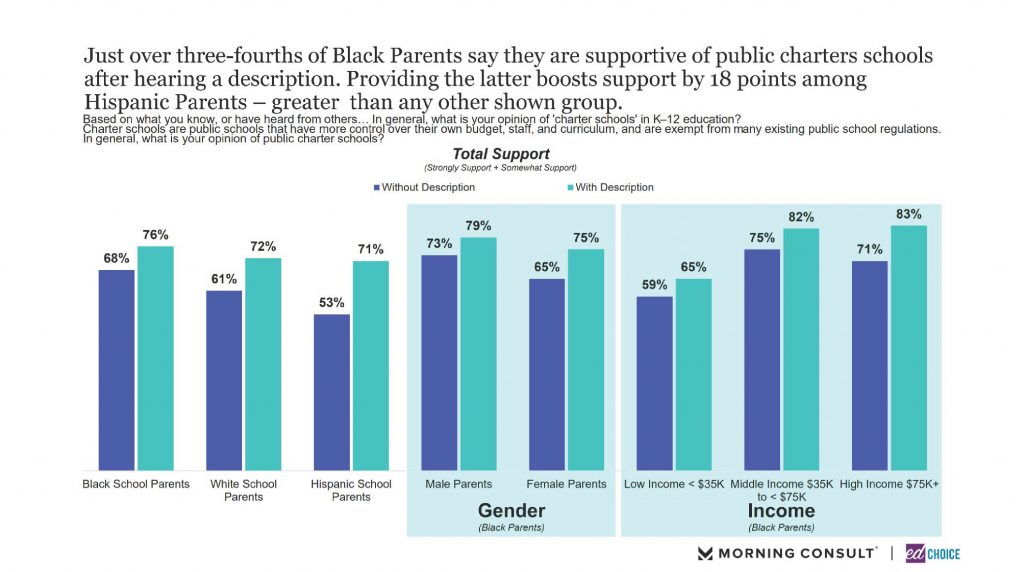
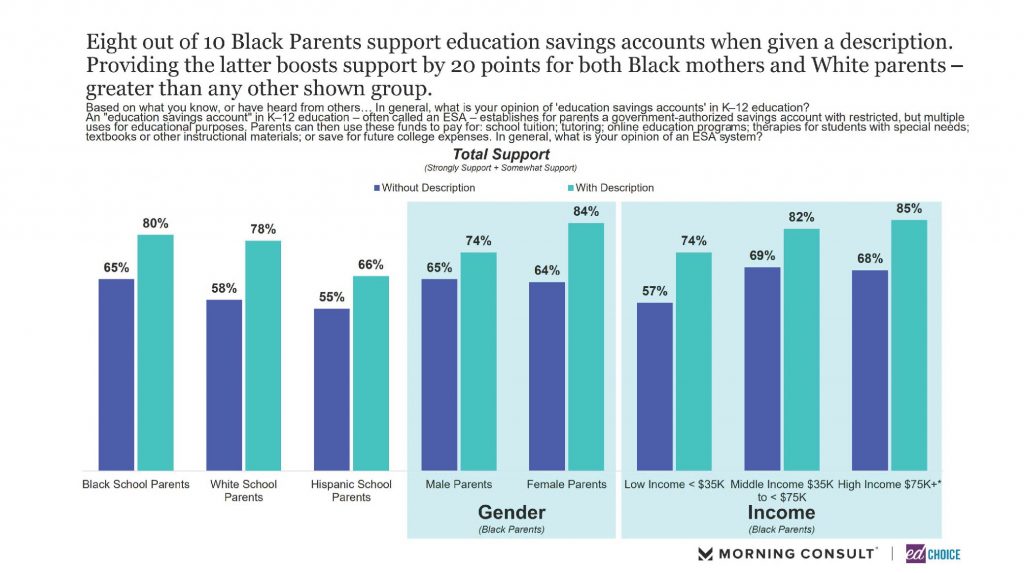
You can read the full slide deck here.




